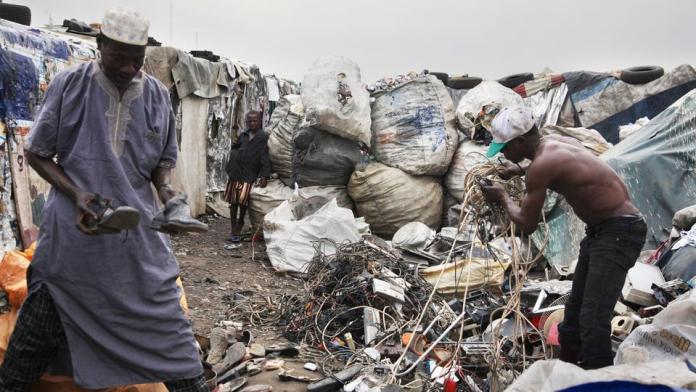Nigeria’s scrap industry hits N200 bn, says waste dealers’ employers

By Faridat Salifu
The National Association of Scrap and Waste Dealers Employers of Nigeria (NASWDEN) has valued the current scrap and waste industry in the country at N200 billion.
Speaking at the 2024 Special Delegate Conference in Abuja, NASWDEN Chairman, John Egaji Obeh, highlighted both the economic potential and the challenges facing the industry.
With prices averaging N750,000 per ton of scrap metal, he said the sector has emerged as a valuable component of Nigeria’s informal economy, decrying, however, that it grapples with widespread vandalism that threatens infrastructure and the stability of the scrap trade.
Held with the theme: “Operation Say No to Vandals and Illegal Ticketers on our Highways,” the conference addressed the urgent need to regulate and protect the industry.
Obeh pointed out that presently, the highest grade of scrap metal can fetch as much as N800,000 per ton, indicating robust demand across various grades, which include Grade 1, 2, and 3 materials.
However, he noted that a rise in vandalism has inflated the value of scrap materials, as stolen infrastructure and public property often end up in the hands of unauthorized dealers.
“We are launching a campaign to bring sanity to the industry,” Obeh announced, highlighting how vandalism has placed a financial strain on government installations and private properties alike.
This increase in illicit activity, he explained, has raised the price of scrap while disrupting legitimate trade, adding that NASWDEN’s efforts are not only aimed at stabilizing the market but also at creating a safe and transparent environment for scrap traders.
To tackle the issue head-on, the chairman said NASWDEN has established a task force in collaboration with local law enforcement agencies, including the Nigerian Civil Defence Corps and the police.
Starting November 8, 2024, he explained, the team will conduct regular inspections on scrap trucks operating across Nigeria, ensuring that materials transported are lawfully acquired.
“Our team will inspect any scrap truck moving around to check its contents,” Obeh stressed, adding that the association’s collaboration with security agencies is designed to curtail the flow of illicitly obtained scrap materials and deter vandalism.
Obeh expressed hope that these measures will protect legitimate businesses and attract new end users to the industry, potentially increasing the demand for properly sourced scrap material.
“We aim to reduce vandalism costs and bring order to the business, ultimately benefiting both traders and consumers,” he said.
